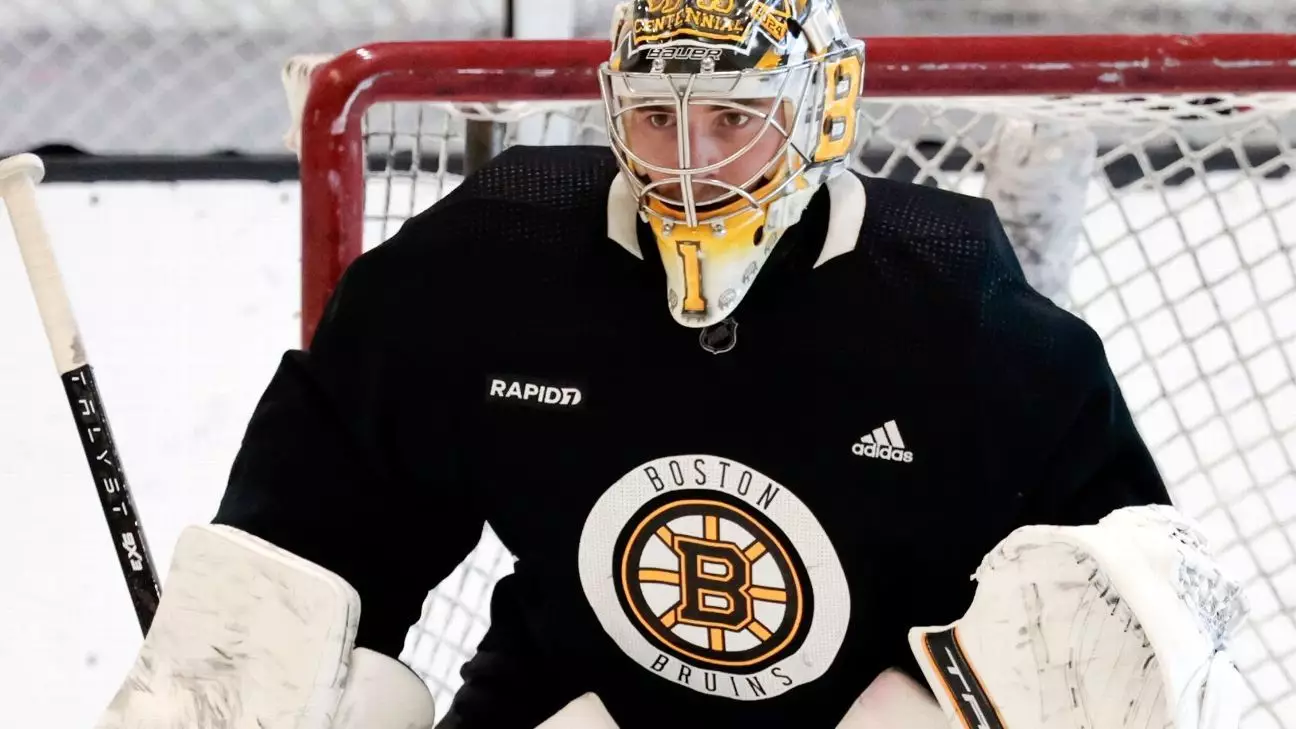The ongoing contract negotiations between the Boston Bruins and their restricted free agent, Jeremy Swayman, have taken a decidedly tense turn. As the goaltender decides to forgo attending training camp, frustration is palpable on both sides. Swayman, 25, is facing a pivotal moment in his career, and without a new contract, the starting position in a franchise with high expectations is hanging in the balance. Adding fuel to the fire, his agent, Lewis Gross, has openly contradicted claims made by the Bruins regarding a supposed contract offer. This public disagreement points to a significant breakdown in communication, which could have long-lasting implications for both the player and the franchise.
The Implications of Swayman’s Absence
Coach Jim Montgomery has already indicated that Joonas Korpisalo will likely be stepping into the starter role for the season opener against the Florida Panthers. This strategic decision raises questions about the Bruins’ dependence on Swayman, especially considering he was expected to lead the team following the trade of Linus Ullmark to the Ottawa Senators. While Korpisalo’s talents are undeniable, his presence replaces what was once a formidable duo with Swayman, creating a void that could impact the team’s performance if the negotiations remain unresolved.
Cam Neely, the Bruins’ president, has publicly expressed optimism about Swayman’s desire to play for the team but also lamented the protraction of negotiations, suggesting a lack of alignment on financial expectations. This statement reflects not only the organization’s wish to secure Swayman’s talents but also their belief that the financial request from Swayman’s camp might be significantly above what the franchise finds reasonable.
The crux of the issue appears to rest on a significant disagreement regarding Swayman’s contract demands. According to Neely, there seems to be an aspiration from Swayman’s side to reset the goalie market, while the team has a different perspective on what constitutes fair compensation for his achievements thus far. Gross responded robustly, stating that the $64 million figure referenced by Neely was a shock to all involved, revealing a lack of previous discussions around such a lofty valuation.
It’s clear that Swayman’s representative feels wronged by how the negotiations have been handled. By taking to social media to air frustrations, Gross is not only defending his client but also showcasing the severity of their grievances against the Bruins. The statement implies that the relationship between the player and management could take a hit if not navigated carefully from this moment forward. The public nature of this dispute might affect morale in the locker room, especially if Swayman is perceived as a victim of the organization’s internal dynamics.
The Bruins’ decision to trade Ullmark before securing Swayman’s contract could be scrutinized as a miscalculation. General Manager Don Sweeney defended the trade by insisting that it was necessary for the team to alleviate salary cap concerns and provide each goaltender with adequate playing time without infringing on the other’s opportunity. However, many observers have criticized this move, suggesting it prematurely limited his negotiating power, essentially making Swayman the only viable option for the Bruins.
Sweeney’s insistence that the negotiations and the Ullmark deal are unrelated falls flat in light of the tricky financial landscape that teams like the Bruins are now navigating. As competition for talented goaltenders increases, the reluctance to keep Swayman under contract could be interpreted as mismanagement, especially when the player has already demonstrated his capability to produce strong results on the ice.
As the clock ticks toward the opening of the season, both parties must understand the high stakes involved in these negotiations. Swayman’s absence from training camp could diminish his readiness come game time, and a protracted stalemate could see him miss out on valuable playing opportunities. Compounding the urgency is the fact that December 1 looms as a significant deadline, and it is imperative that a resolution be reached long before that date to avoid any lasting animosity.
In assessing the factors surrounding this contentious negotiation, it becomes evident that a middle ground must be sought. Both Jeremy Swayman and the Boston Bruins have a lot to gain from an amicable resolution. With high aspirations for the upcoming NHL season, it is in every participant’s best interest to hang up the gloves and come to the bargaining table with more understanding and fewer entrenched positions. In this landscape of negotiations, clarity and communication will be essential in ushering Swayman back into the fold and fortifying the Bruins’ chances for success.

